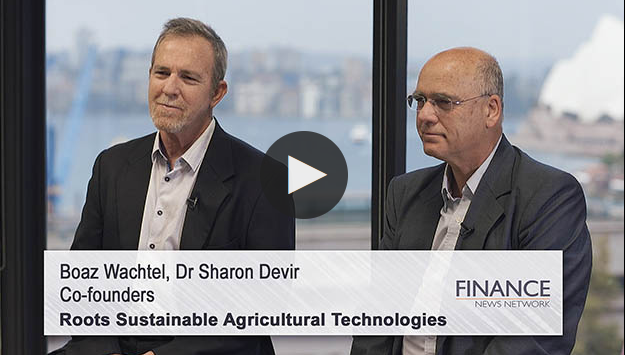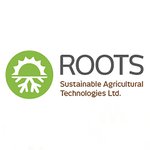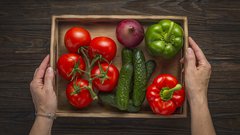ROO Makes Major Off-Grid Breakthrough in Ag-Tech Using Solar Energy
Hey! Looks like you have stumbled on the section of our website where we have archived articles from our old business model.
In 2019 the original founding team returned to run Next Investors, we changed our business model to only write about stocks we carefully research and are invested in for the long term.
The below articles were written under our previous business model. We have kept these articles online here for your reference.
Our new mission is to build a high performing ASX micro cap investment portfolio and share our research, analysis and investment strategy with our readers.
Click Here to View Latest Articles
We last caught up with Roots (ASX:ROO) just a couple of week ago, updating readers on how busy the company has been over the last month.
That particular article focused on how ROO is increasing its sales pipeline expanding into new territories, as well as commercialising its Irrigation by Condensation (IBC) technology, which it hopes to do by the end of the year.
A couple of highlights over the past year have been:
- a US$19 million conditional exclusive
Chinese distribution agreement with Dagan Agricultural Automation;
- shipping the first of its patented Root Zone Temperature Optimisation
(RZTO) products;
- successful winter pilot study.
Today, ROO has announced that it has successfully installed the world’s first stand-alone Irrigation by Condensation (IBC) system utilising solar and/or wind energy.
This system is capable of growing and sustaining entire growth cycles of food independent of the electricity grid or a normal water supply.
This is a big achievement for the company and essentially means its off-grid system can produce food crops using irrigation sourced only from humidity in the air and energy from the sun or wind.
Although it is still early stage in how this technology will affect the overall ag-tech market, so investors should seek professional financial advice of considering this stock for their portfolio.
Roo’s groundbreaking technology could very well change the way food crops are produced.
So let’s look at this news in more detail.
By unveiling the world’s first solar or wind-operated Irrigation by Condensation (IBC) system that works ‘off the grid’, Roots (ASX:ROO) has effectively changed the way small and medium scale food production in areas with no stable access to local electricity or water is conducted.
The technology also benefits farmers in semi-arid areas who suffer from water quality, scarcity and infrastructure access issues.
Here’s ROO co-founders Sharon Devir and Boaz Wachtel discussing with the Finance News Network the plant productivity trials and commercialisation plans leading up to this announcement.
The technology will be unveiled at Agri-Tech Israel 2018 International Exhibition and Conference next week. It is one of the world’s most important exhibitions in the field of agricultural technologies and has a generally positive impact for exhibitors.
It is likely that ROO will make a big splash at this conference, with many delegates interested in viewing the IBC system as well as the company’s root zone heating and cooling technology.
However they have already had a large impact in the world of ag-tech and hope to do the same amongst investors.
The purpose of ROO’s tech
Roots’ IBC off-grid technology was designed to enable small and medium scale farmers to grow food crops irrigated only from humidity in the air. The tech works in remote semi-arid areas suffering water scarcity and quality issues with no access to grid electricity or irrigated water.
The IBC installation is designed initially for growing high protein crops including beans and alfalfa.
ROO’s successful installation of the world’s first solar or wind-powered IBC system demonstrates a viable decentralised solution for many of the 500 million smallholder farmers who currently struggle with water for crop production.
This patented IBC system has the ability to play a tangible role in benefiting many of the two billion people across the world who depend on smallholder farms for their livelihoods. The system will provide a more sustainable living for farmers, families and the communities in which they operate, which is particularly important in areas where rainfall is scarce.
The IBC system is also designated for use in advanced agricultural countries to irrigate plantations, covered crops in greenhouses and anywhere where water scarcity is the limiting production factor.
How it works
You can see how important this technology can be, but how does it work?
According to co-founder Sharon Devir, the IBC operates using a combination of wind turbines and photovoltaic power sources to chill and circulate the one-time fill up water tank in a closed cycle and create a stand-alone system able to sustain entire growth cycles of food crops, 365 days a year, independently of any external water and energy sources.
Devir says, “The energy produced by either solar panels and/or wind turbines is used to chill the one-time fill up water tank to below dew point in an insulated tank. A small flow pump then circulates this water in closed cycle in pipes laid near the plants in the field or greenhouse. This produces condensation on the external surface of the pipes that flow by gravitation to the soil and roots. The amount of water produced and required energy depend on relative humidity, air temperature, pipe numbers and surface area, and water temperature circulating in the pipes. Following a one-time purchase expense, the system operates autonomously after a single water tank fill at installation. After this, the farmer will not have to pay for water or energy for years to come.”
That would seem to be a pretty big advantage for farmers and could very well change the industry as we know it.
Although it is early stages here and investors should take a cautious approach to any investment decision made with regard to this stock.
The system will be effective even in semi-arid areas due to high humidity at night which is is sufficient in most cases to produce the water required to sustain growth cycles.
The off-grid system could also assist forestation efforts to fight desertification by providing young trees with water during the early stages of growth, before their roots reach the depth that would allow them to survive the harsh arid environment.
What to expect
Looking forward, ROO is looking for technology partners to make the IBC off-grid system affordable to low income farmers.
It is also as looking to collaborate with international and government institutions interested in marketing and/or subsidising the groundbreaking technology for low-income level farmers.
The first commercial version of the IBC off-grid system is expected to be made for sale by the end of 2018.
You can read a more in-depth account of ROO’s overall technology in our previous article: AgTech ROO on Direct Path to Commercialisation in $10 Billion AgriFood Industry.
General Information Only
S3 Consortium Pty Ltd (S3, ‘we’, ‘us’, ‘our’) (CAR No. 433913) is a corporate authorised representative of LeMessurier Securities Pty Ltd (AFSL No. 296877). The information contained in this article is general information and is for informational purposes only. Any advice is general advice only. Any advice contained in this article does not constitute personal advice and S3 has not taken into consideration your personal objectives, financial situation or needs. Please seek your own independent professional advice before making any financial investment decision. Those persons acting upon information contained in this article do so entirely at their own risk.
Conflicts of Interest Notice
S3 and its associated entities may hold investments in companies featured in its articles, including through being paid in the securities of the companies we provide commentary on. We disclose the securities held in relation to a particular company that we provide commentary on. Refer to our Disclosure Policy for information on our self-imposed trading blackouts, hold conditions and de-risking (sell conditions) which seek to mitigate against any potential conflicts of interest.
Publication Notice and Disclaimer
The information contained in this article is current as at the publication date. At the time of publishing, the information contained in this article is based on sources which are available in the public domain that we consider to be reliable, and our own analysis of those sources. The views of the author may not reflect the views of the AFSL holder. Any decision by you to purchase securities in the companies featured in this article should be done so after you have sought your own independent professional advice regarding this information and made your own inquiries as to the validity of any information in this article.
Any forward-looking statements contained in this article are not guarantees or predictions of future performance, and involve known and unknown risks, uncertainties and other factors, many of which are beyond our control, and which may cause actual results or performance of companies featured to differ materially from those expressed in the statements contained in this article. S3 cannot and does not give any assurance that the results or performance expressed or implied by any forward-looking statements contained in this article will actually occur and readers are cautioned not to put undue reliance on forward-looking statements.
This article may include references to our past investing performance. Past performance is not a reliable indicator of our future investing performance.









